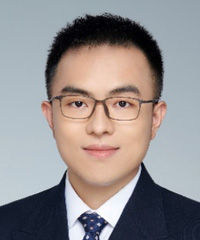Search

Prof. Yufei Ma, Peking University, China
T2-1: 13:00-14:15, Oct. 22, 2024, Tuesday
Title: In-Memory Neuromorphic Computing Algorithm and Hardware
Abstract:
Presently, the core of artificial intelligence (AI) algorithms lies predominantly in deep artificial neural networks (ANNs). Despite achieving notably high recognition accuracies, these ANNs incur substantial energy consumption and resource demands, which render their implementation challenging within resource-constrained edge mobile devices. In contrast, spiking neural networks (SNNs), rooted in the field of neuromorphic computing, excel at emulating the brain's efficient, spike-driven computational processes that require minimal power. By seamlessly integrating in-memory computing into SNNs, they eliminate the energy-intensive transfer of weight data, thereby more closely approximating the brain-like neuromorphic functionalities. This interdisciplinary convergence of AI, integrated circuits, and neuroscientific principles presents vast research opportunities and potential applications. This comprehensive tutorial delves deeply into the software algorithms, circuit designs, and hardware architectures of spiking neural networks, drawing from both traditional ASIC approaches, e.g., Loihi, and the emergent domain of in-memory computing technologies, particularly utilizing SRAM. This tutorial aims to systematically guide learners through the latest advancements in both the algorithm of SNNs and the in-memory based neuromorphic computing hardware architecture.
Biography:
Yufei Ma is an Assistant Professor at the Institute for Artificial Intelligence, and the School of Integrated Circuits at Peking University, Beijing, China. His current research focuses on energy-efficient AI/ML accelerator, in-memory computing, neuromorphic computing, and algorithm-hardware co-design for deep learning. In the field of integrated circuit and hardware architecture, over 20 papers as first author or corresponding author have been published, including ISSCC, TCAS-I, TVLSI, TCAD, DAC, ICCAD, CICC, FPGA, etc. His Google Scholar citations amount to 2290, with 1032 SCI citations. He has served as a TPC member for DAC from 2021 to 2024.






 loading......
loading......